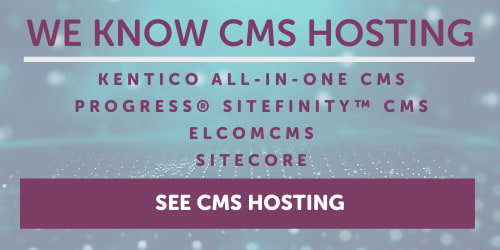
Every business needs a marketing engine. Otherwise, how would customers and clients even know that you exist? While word-of-mouth and referrals will always be a reliable source of new business, a more proactive marketing strategy is what separates fast-growing businesses from businesses that barely grow at all. Your business needs an effective marketing Content Management System (CMS).
In the current global climate, more and more marketing initiatives are taking place online. True, there are still billboards on the interstate and ads on the radio, but a proper digital marketing strategy is critical. Most prospects will visit a website before choosing to patronize a business. Existing customers will revisit a website to make repeat purchases.
At the core of any web presence is the CMS that powers the website itself. Some businesses need a simple website that shows their location, phone number, and service offerings. Some businesses need a website that can tie into Enterprise Resource Planning (ERP) or inventory systems. No two business needs are the same when it comes to the corporate website, so it’s a good thing that there is a myriad of choices available for choosing a marketing CMS.
Choosing the Right Marketing CMS
When it comes to selecting the CMS for your business website, there are several factors to consider. From strategic questions around your digital marketing goals to tactical questions around how those goals will be executed, your CMS is the starting point of any great digital marketing strategy.

Here are four questions worth answering as you decide what content management system is right for you:
1. Who will be managing and administering the website and associated digital properties?
Like all software, content management systems must be updated and managed to perform optimally. From adding users and modifying permissions to ensuring the site stays secure, someone will need to serve as the administrator of the site itself. In some cases, a third-party can lend a hand. Perhaps you have someone internally to take on the role. Or perhaps you choose a CMS that is managed by the publisher.
Key Takeaway: As you select the right CMS for your business, it is important to determine how you will ensure your digital presence is operating correctly and securely.
2. Who will be updating and adding content to the website?
This question is different from the one above but equally important. When the website is finally online and helping drive your marketing initiatives, who will be adding content, making changes to the website, and executing digital marketing campaigns? Depending on their skill level or technical aptitude, your ideal CMS might look very different from someone else’s.
Key Takeaway: From publishing blog posts to creating landing pages, it is important to identify who will be using the CMS, as well as how they will use it, before making their selection.
3. What other tools and systems need to integrate with the website?
Examine which systems your website needs to integrate with upfront. In some cases, a website can stand alone with very few integrations and additions. However, as websites become more central to business growth (particularly when it comes to eCommerce), it is rare that there aren’t at least a few necessary integrations. From tying into the customer relationship management system (CRM) to integrating with inventory and logistics tools to combining with accounting software, most business websites now tie into other systems.
Key Takeaway: Mapping out which integrations you need now and keeping an eye on the future will impact the decision of which CMS is right for you.
4. What is your budget?
Many closed-source content management systems have an upfront cost to get started and an ongoing cost for updates and support. Open-source content management systems like WordPress or Drupal don’t actually cost anything to use, but customizing them and finding support does require spending some money with a web developer or agency.
Key Takeaway: While there are plenty of arguments to be made between using open-source or proprietary technology, your budget will greatly impact which direction you’ll go when choosing a CMS.
One More Key Factor in Your Marketing CMS Selection
Oftentimes, the factors above are answered in combination with the infrastructure provider that powers the CMS. Some companies offer platforms wherein the content management solution is hosted on powerful infrastructure and supported and maintained by a team of skilled engineers. In such a case, updates and security are already included, and the assistance needed for actually using the CMS is only a phone call away.
For example, Liquid Web offers a managed Magento solution. Other hosts offer managed CMS solutions, such as a managed Drupal platform for those who choose Drupal as their CMS.
Other times, choosing a CMS and where to host it are two different decisions. The aforementioned open-source software can be hosted on a VPS or dedicated server, but application support may well be found somewhere other than with the hosting provider.
Downloading an open-source CMS and self-hosting can be a great option for companies that require different types of server access or integrations that a platform service does not support.
Advantages and Disadvantages of Proprietary Content Management Systems
Some closed-source systems, like Adobe Experience Manager, are hosted and supported by the software publisher completely. As a result, the entire CMS experience is managed, maintained, and secured by a single partner.
Sitecore, HubSpot, and others offer enterprise-grade CMS options capable of integrations and customizations necessary for larger companies. However, beware as arrangements like this often carry an onerous cost. Even worse, if you ever choose to change to a different CMS, the migration path is nearly impossible since closed-source systems rarely offer ways for data, posts, and objects to be converted to a different content management system. The lock-in with these tools is massive!
Other closed-source CMS like Squarespace or Shopify provide users with a platform that allows them to create, publish, and sell on the Internet without worrying about security and infrastructure as that is already handled. Even more, many of these page-builders and systems are available at a very appealing price point. However, the trade-off is that many customizations and integrations are not available and the migration problems mentioned above persist.
A Clear Roadmap to the Right Marketing CMS
The right CMS for your marketing engine comes down to a number of factors. The good news is that none of the considerations or qualifications should be confusing or complicated. In fact, the parameters listed above should provide a rather clear roadmap for consideration when it comes to which content management system is a good fit for your business, the sector in which you intend to market, and your team.
If you need a hand in determining which CMS is right for your business, the Most Helpful Humans in Hosting are here to help. With decades of experience helping small and medium businesses worldwide find their digital voice, Liquid Web’s team of engineers and experts can help you answer the questions above and navigate your way to the right choice for your organization. Even better, our wide array of infrastructure and managed CMS solutions mean that you’ll have not just expertise but experience on your side along the way. Contact us to learn more about content management systems and how Liquid Web can be your ally when it comes to digital marketing.
[ad_2]
Source link







